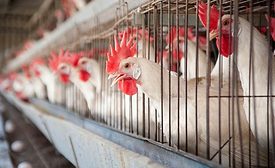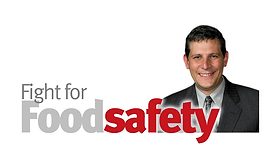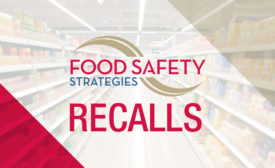Articles by Shawn Stevens
Commentary | Fight for Food Safety
COVID-19 aftermath: Come together, don't fall apart
August 3, 2020
Commentary | Fight for Food Safety
Will expanded E. coli sampling be good for consumers?
July 3, 2020
Fight for Food Safety
Developing an effective Food Defense Program (FDP)
Defending against the unthinkable
March 5, 2019
Never miss the latest news and trends driving the food safety industry
eNewsletter | Website | eMagazine
JOIN TODAY!Copyright ©2024. All Rights Reserved BNP Media.
Design, CMS, Hosting & Web Development :: ePublishing









